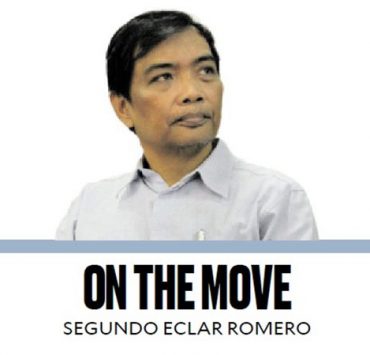Filipino synderesis: Understanding the choices we make and actions we take

The concept of synderesis, a foundational principle in ethics and moral philosophy, posits that humans are inherently inclined toward goodness and possess an intrinsic moral compass that guides their actions. It suggests that we have an intuitive understanding of right and wrong, which significantly influences our decision-making. However, the application of synderesis in human choices is often complicated by a myriad of factors, including personal biases, cultural norms, and environmental influences.
In the context of the Filipino people, many exhibit a seemingly contradictory behavior. This paradox invites a deeper exploration of how synderesis shapes our moral judgments and decision-making processes, prompting us to consider the complexities that underlie our choices and the societal factors that may obscure our innate sense of right and wrong.
The existentialist maxim “existence precedes essence” provides a compelling framework for understanding the complexities of identity and decision-making among the Filipino people. This philosophical principle posits that our existence comes before our essence, implying that we first exist and subsequently forge our own identities through the choices we make and the actions we take. In essence, our decisions and behaviors are instrumental in shaping who we are and what we value. The character of many Filipinos is molded by a rich tapestry of factors, including cultural norms, historical experiences, and socioeconomic conditions. Our colonial history, for instance, has left an indelible mark on our values and worldview. The pervasive influence of Western culture has often led to a tendency to prioritize individual interests over the collective good. This shift can create a dissonance between our intrinsic moral compass and our lived experiences, sometimes resulting in misguided decision-making, such as the election of leaders who may not be suited for their roles.
Moreover, the emphasis on personal relationships and social harmony within Filipino culture can sometimes foster a tolerance for corrupt practices and a reluctance to hold leaders accountable. This dynamic may perpetuate a cycle of ineffective governance and reinforce the belief that personal interests often take precedence over the collective good. However, the issue may not lie solely in the principle of synderesis itself, but rather in how it is applied within our decision-making processes. Many Filipinos may be unaware of their inherent moral compass or lack the critical thinking skills necessary to navigate complex moral dilemmas effectively. This deficiency in awareness and critical thinking can result in poor decision-making and the election of leaders who do not prioritize the welfare of the populace.
To effectively address this issue, it is crucial to foster critical thinking, moral education, and civic engagement among Filipinos. By equipping citizens with the knowledge and skills necessary to apply synderesis—their innate moral understanding—in their decision-making processes, we can cultivate a more informed and ethically conscious populace. Furthermore, tackling the root causes of poverty, inadequate education, and exposure to corrupt practices is essential to bridging the gap between our inherent moral compass and our lived experiences. By creating opportunities for economic development, enhancing educational access, and promoting moral formation, we can establish an environment that encourages the application of synderesis in human choices.
Like all human beings, we Filipinos possess an inherent understanding of right and wrong, as articulated by the principle of synderesis. We also enjoy the freedom to choose between good and bad, a concept emphasized by the existentialist maxim, “existence precedes essence.” However, it is unfortunate that our choices often lean toward what is wrong.
REGINALD B. TAMAYO,
Marikina City

















